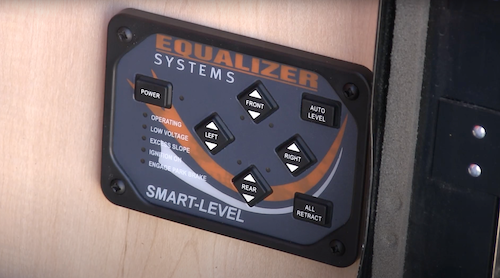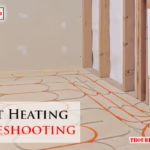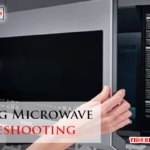Equalizer systems can sometimes face issues. Knowing how to troubleshoot them is crucial.
This guide will help you understand and fix common problems with equalizer systems. Equalizer systems are vital for maintaining balance and stability in various vehicles and machinery. When these systems malfunction, it can disrupt operations and lead to costly downtime.
This blog aims to provide you with straightforward troubleshooting steps for common equalizer system issues. From hydraulic leaks to electrical faults, we’ll cover the basics to help you get your system back in working order quickly. Whether you’re a technician or a DIY enthusiast, this guide is designed to be simple and easy to follow. Let’s dive in and solve those equalizer system problems together.

Credit: rvsnappad.com
Common Issues
When dealing with equalizer systems, various issues can arise. Understanding these common problems can help you troubleshoot more effectively. Below, we will discuss the most frequent problems you might encounter.
Hydraulic Problems
Hydraulic issues often cause uneven leveling or slow operation. Here are some common hydraulic problems:
- Low Hydraulic Fluid Levels: Check the fluid reservoir. Low fluid can cause the system to malfunction.
- Leaking Hoses: Inspect hoses for leaks. Replace any damaged hoses immediately.
- Air in the System: Air can enter the hydraulic system. Bleed the system to remove air pockets.
- Faulty Hydraulic Pump: A faulty pump can reduce efficiency. Test the pump and replace if necessary.
Electrical Issues
Electrical problems can disrupt your equalizer system’s performance. Here are some electrical issues to look out for:
- Blown Fuses: Check all fuses. Replace any that are blown.
- Corroded Connections: Inspect electrical connections. Clean or replace corroded terminals.
- Faulty Wiring: Examine wiring for damage. Repair or replace any faulty wires.
- Defective Control Panel: The control panel might be malfunctioning. Test the panel and replace if needed.
Identifying these common issues is the first step in troubleshooting your equalizer system. Regular maintenance can prevent many of these problems.
Diagnosing Problems
When your Equalizer System is not working properly, quick diagnosis is key. This section provides clear steps to identify issues. It guides you through initial checks and using diagnostic tools. Let’s dive in!
Initial Checks
Start with a few basic checks to rule out common issues:
- Power Supply: Ensure the system is getting power. Check the fuses and circuit breakers.
- Connections: Inspect all electrical connections. Look for loose or corroded terminals.
- Fluid Levels: Check the hydraulic fluid levels. Low fluid can cause malfunctions.
- Control Panel: Verify the control panel is functioning. Press buttons to see if they respond.
Using Diagnostic Tools
If initial checks do not solve the issue, move on to diagnostic tools:
- Multimeter: Use a multimeter to check voltage and continuity. This helps identify electrical problems.
- Scan Tool: Some systems have a scan tool. It reads error codes and provides troubleshooting steps.
- Manual Override: Many systems have a manual override. Use it to test the system independently from the control panel.
- Manufacturer’s Guide: Refer to the manufacturer’s troubleshooting guide. It often includes detailed diagnostic procedures.
Using these steps, you can pinpoint the issue with your Equalizer System effectively. Stay calm, follow the guide, and you’ll find the solution.
Hydraulic System Fixes
Having a reliable hydraulic system is crucial for your equalizer systems. When issues arise, they can disrupt your operations. Troubleshooting hydraulic systems can be complex, but understanding common problems helps. Here, we focus on fixing fluid leaks and pump malfunctions.
Fluid Leaks
Fluid leaks in hydraulic systems are common. They can cause system inefficiency and potential damage. Here are some steps to address fluid leaks:
- Inspect hoses and fittings: Check for any visible cracks or damages.
- Tighten connections: Loose connections can lead to leaks. Ensure all are tight.
- Replace damaged parts: If you find any damaged hoses or fittings, replace them immediately.
- Check seals: Worn seals can cause leaks. Inspect and replace if necessary.
Regular maintenance can prevent fluid leaks. Always keep an eye on the fluid levels and condition.
Pump Malfunctions
The pump is vital for the hydraulic system. A malfunctioning pump can halt operations. Here are common issues and their fixes:
- Low Fluid Levels: Ensure the hydraulic fluid is at the correct level.
- Air in the System: Air bubbles can cause pump failure. Bleed the system to remove air.
- Clogged Filters: Dirty filters can restrict fluid flow. Clean or replace filters regularly.
- Worn Pump Components: Inspect the pump’s internal components. Replace any worn parts.
Maintaining your pump is essential. Regular checks and timely replacements keep it running smoothly.
Electrical System Fixes
When troubleshooting Equalizer Systems, electrical issues often arise. These problems can disrupt the system’s functionality. Understanding common electrical fixes can help get your system back on track. Below, we discuss two frequent electrical issues: blown fuses and wiring problems.
Blown Fuses
Blown fuses are a common issue in Equalizer Systems. Fuses protect the electrical circuits from overloading. If a fuse blows, the system stops working. To fix this, locate the fuse box. Check each fuse for visible damage. Replace any blown fuses with the same type and rating. This simple fix can restore your system’s functionality.
Wiring Issues
Wiring issues can cause major problems in an Equalizer System. Damaged wires can lead to poor connections. Inspect the wiring for any signs of wear or damage. Look for frayed wires or loose connections. Repair or replace any damaged wires. Ensure all connections are secure. Proper wiring ensures smooth operation of your system.
Maintaining Your System
Maintaining your equalizer system is essential for long-term performance. Regular care can prevent issues and keep the system running smoothly. Simple steps can make a big difference.
Regular Inspections
Inspect your system every few weeks. Check for any visible damage. Look for worn-out parts. Listen for unusual noises. A quick inspection can catch problems early.
Preventative Maintenance
Preventative maintenance is key. Lubricate moving parts to reduce wear. Clean components to remove dirt and debris. Tighten loose connections to ensure stability. Replace worn-out parts before they fail.

Credit: rvsnappad.com
When To Seek Professional Help
Troubleshooting equalizer systems can be challenging. Simple issues can be fixed with basic knowledge. But some problems are more complex. Knowing when to seek professional help is important. It saves time and prevents further damage. Let’s explore when it’s best to call in an expert.
Identifying Complex Problems
Not all issues are easy to spot. If the system fails to respond, it may be due to a hidden fault. Strange noises or irregular movements are also signs of deeper problems. If basic troubleshooting steps fail, it might be time for a professional. They have the tools and experience to diagnose issues correctly.
Another sign of a complex problem is repeated failures. If the same issue keeps occurring, it suggests an underlying cause. A professional can find and fix this root problem. They ensure the system runs smoothly again. This prevents future breakdowns and extends the system’s life.
Choosing A Qualified Technician
Not all technicians are the same. Look for someone with experience in equalizer systems. Check their certifications and reviews. A qualified technician can diagnose and fix issues efficiently. They use the right tools and methods. This ensures a reliable repair.
Ask for recommendations from friends or online forums. Look for technicians who offer warranties on their work. This shows confidence in their skills. A good technician will explain the problem and solution clearly. This helps you understand what went wrong and how it was fixed.
Tools And Equipment
Troubleshooting your Equalizer Systems requires the right tools and equipment. Using the correct tools ensures you can diagnose and fix issues effectively. Without these tools, identifying the problem can become challenging. Here, we will cover essential tools and recommended brands for the task.
Essential Tools
First, you need a digital multimeter. It helps check electrical connections and power levels. A set of screwdrivers is also necessary. Different sizes accommodate various screws in the system. Pliers, both needle-nose and standard, assist in gripping and pulling components. A wrench set helps loosen or tighten bolts. Having a flashlight is crucial for inspecting tight or dark spaces. An inspection mirror allows you to see hard-to-reach areas. Lastly, a wire stripper makes removing insulation from wires easier.
Recommended Brands
For digital multimeters, Fluke is a trusted brand. Their tools are reliable and accurate. Craftsman offers a good range of screwdrivers. Their products are durable and comfortable to use. Klein Tools provides high-quality pliers. They are known for their strength and precision. Crescent is a great brand for wrenches. Their tools are sturdy and effective. Streamlight produces excellent flashlights. They are bright and long-lasting. General Tools offers reliable inspection mirrors. They are adjustable and clear. Lastly, Irwin makes efficient wire strippers. Their tools are sharp and easy to handle.
Safety Precautions
When troubleshooting equalizer systems, safety should always be the top priority. Following proper safety precautions helps prevent accidents and ensures a smooth troubleshooting process. This section will guide you through important safety measures for both personal and system safety.
Personal Safety
Ensure you wear protective gear such as gloves and safety goggles. This protects you from potential hazards like electrical shocks and flying debris.
- Turn off the system before starting any troubleshooting.
- Keep a fire extinguisher nearby in case of emergencies.
- Work in a well-ventilated area to avoid inhaling harmful fumes.
Remember to stay focused and avoid distractions. Your safety depends on your attention to detail.
System Safety
Protecting the system is just as important as protecting yourself. Follow these steps to ensure the system remains undamaged.
- Check all wires and connections for wear and tear.
- Use a multimeter to test electrical components.
- Follow the manufacturer’s guidelines for troubleshooting.
Proper system care extends its lifespan and improves performance.
| Safety Measure | Purpose |
|---|---|
| Turn off the system | Prevents electrical accidents |
| Wear protective gear | Protects from physical harm |
| Check connections | Ensures system integrity |

Credit: rvsnappad.com
Frequently Asked Questions
Why Won’t My Equalizer System Extend?
Check for low hydraulic fluid. Also, ensure the control panel is working.
How Do I Reset My Equalizer System?
Turn off the power, wait a few minutes, then turn it back on.
What Causes My Equalizer System To Beep?
Beeping often means low fluid or an error in the control panel.
Why Is My Equalizer System Not Leveling?
Verify sensors and control panel connections. Low fluid can also be a cause.
How Can I Check For Hydraulic Fluid Leaks?
Inspect hoses and connections for any visible signs of leaking fluid.
Conclusion
Troubleshooting equalizer systems can be simple with the right steps. Follow the tips mentioned to identify and solve issues. Regular maintenance ensures your system works efficiently. Keep an eye on common problems and fix them early. Understanding basic troubleshooting helps avoid costly repairs.
Remember to consult your manual for specific guidance. Don’t hesitate to seek professional help if needed. Stay patient and persistent. Your equalizer system will function smoothly with care. Enjoy better sound quality without unnecessary stress. Happy troubleshooting!






